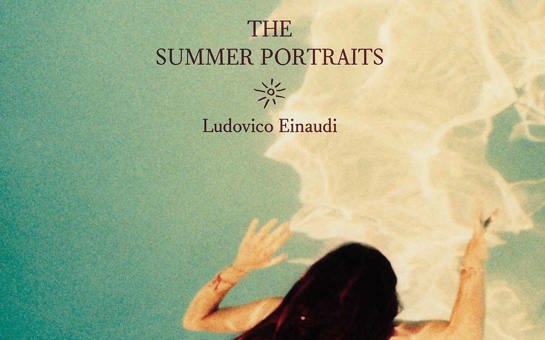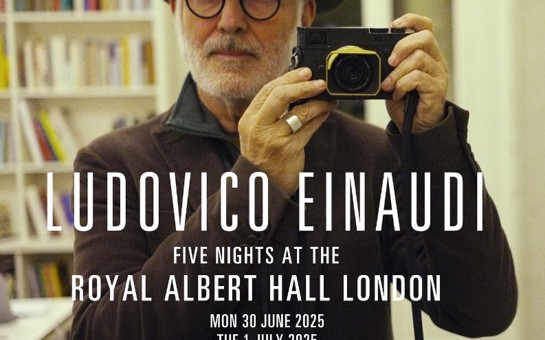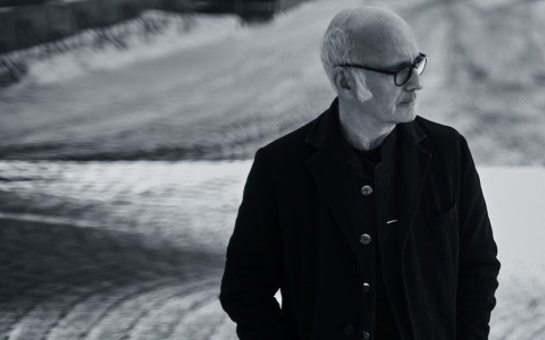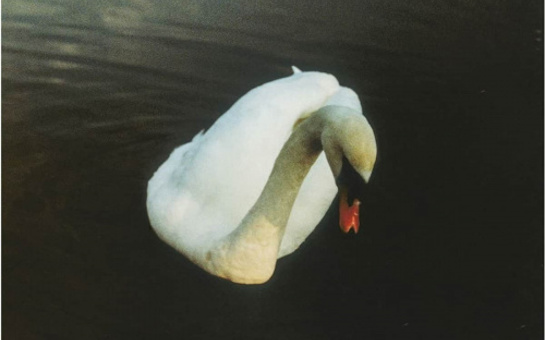Biography
Pianist and composer Ludovico Einaudi was born in Turin on November 23rd 1955. Perhaps it was his mother, an amateur pianist, who first introduced him to music, planting the seeds for what would become an illustrious career. He began to study music at the Conservatory of Turin and graduated under Azio Corghi at the Conservatory of Milan, and then studied with Luciano Berio, becoming his assistant, and with Karlheinz Stockhausen. In 1982 his talents won him a scholarship to the Tanglewood Music Festival, where he first came into contact with American minimalism. He spent the next several years composing for the ballet, the cinema and the theater, including “Sul filo d’Orfeo” (1984), “Time out” (1988), “The Wild Man” (1991), and “Salgari” (1995), as well as numerous pieces for orchestra and ensemble, which were performed at La Scala of Milan, the Paris Ircam and Lincoln Center, in New York. With the album “Stanze” (1992), a collection of sixteen compositions for harpist Cecilia Chailly, he set off on “a journey towards essentiality, trying to achieve the maximum expressive intensity using the minimum indispensable”. But it was with “Le Onde” [The Waves] (1996), his first solo album, inspired by Virginia Woolf’s novel, that he truly caught the piano world’s attention, and built on that with his next release, “Eden Roc” (1999), in which he played with a string quintet and duduk master Djavan Gasparyan, and “I giorni” (2001), a cycle of ballads for piano inspired by a trip to Mali. He returned to Africa two years later at the invitation of the Festival au Desert. A new album, “Diario Mali”, with kora master Ballaké Sissoko, blossomed from this experience.
The score he wrote in 2002 for the remake of “Doctor Zhivago” triumphed at the New York Film Festival, confirming the increasing prestige of his soundtracks: “Not of This World” (2000), “Light of My Eyes” (2001), “Strange Crime” (2004), “This is England”, film (2004) and TV series (2010), “The Untouchables” (2011), “Samba” (2014), “The water diviner” (2015) and “The third murder” (2017). He began performing in increasingly important venues.
The live concerts at La Scala of Milan, also recorded on disc, as well as the special concerts at the Hangar Bicocca and the Royal Albert Hall, marked the coronation of full artistic expression. In his next studio album, “Una mattina”, released in 2004, Einaudi’s music becomes more concentrated and introspective, while in the following “Divenire” it expands, driven by the sonorities of the Royal Liverpool Philharmonic Orchestra.
Both records, which were already topping the classical charts, also crossed over into the pop charts, a first. He was the only classical musician to play at the first iTunes festival. During the extended world tour that followed, he never stopped writing new music.
In 2009 he released “Cloudland”, with Robert and Ronald Lippok, and “Nightbook”, a nocturnal, introspective work that “projects the piano in every direction, like a shadow”. The peak performance of his European and American tour was once again at the Royal Albert Hall, recorded live and released as a double CD and DVD.
For two consecutive summers he conducted the Orchestra della Notte della Taranta, exercising a visionary musical direction that left a mark in the traditional music of the “black land of the tarantola”.
In 2013 he released “In a time lapse”, a reflection on time, recorded in a monastery and “conceived as a suite or as the chapters of a single novel”, in which his piano was accompanied by strings, percussion and electronic tracks. The world tour that followed featured many remarkable performances, such as the concerts at the Sidney Opera House and at the Arena of Verona in particular, but also the acclaimed “Piano Africain” performance, for six pianos and six balafons and marimbas, which opened the Piano City Milano festival in 2014.
The album “Elements”, released in 2015, sprang “from the desire to start anew, following different paths”. Recorded over a span of three months in his home studio in the Langhe countryside, “while spring was exploding”, the album became “a map of thoughts and feelings, points, lines, shapes and fragments of an ongoing interior flow through myth, Euclid, the periodic table and Kandinsky’s writings.” During the next three years, the “Elements” tour sold out both the world’s premier pop arenas and the most renowned classical concert halls.
In 2016 he performed his “Elegy for the Arctic”, commissioned by Greenpeace, on a floating platform amidst the ice in the Arctic Ocean.
The same year marked the debut of “Dieci Notti” at Teatro Dal Verme, in Milan, which would become an annual concert series with special events, “to give back something to a city that has given me so much”.
Emerging from long winter walks in the mountains, “Seven Days Walking” is an ambitious and visionary project of seven records, released monthly from March to October 2019, representing as many variations around the same imaginary route, “following the meandering creative process as in a labyrinth, among the forms denuded by the cold, in a kind of extreme essentiality”. At the same time as the cadenced album releases, he resumed touring major American and European venues, including seven consecutive sold-out shows at London’s Barbican.
Also in 2019, he wrote the original music for “Mary said what she said” about the life and torments of Mary Stuart, directed by Bob Wilson, starring Isabelle Huppert and produced by the Théâtre de la Ville de Paris. He was also commissioned by the Teatro Massimo in Palermo to compose the opera “Winter Journey”, with the original libretto by Colm Tóibin and direction by Roberto Andò: a journey through the desolate winter of today’s Europe. Both works confirmed the composer’s maturity and depth in musical theatre.
Performances and world tours were interrupted by the pandemic, but some of his music from “Seven Days Walking” and “Elements” continued to walk on its own, in the two most awarded films of the season: “Nomadland” by Chloé Zhao, (six Oscars, two Golden Globes and the Golden Lion in Venice) and “The Father”, by Florian Zeller. Much of his musical production for the big and small screen is collected in a double album with the title “Cinema” which was released in June 2021, preceded by two collections recorded during the lockdown and released in 2020: “12 songs from home”, played on the piano at home, and “Einaudi Undiscovered”, a series of lesser-known songs, memories, surprises and rediscoveries selected by the composer.
In the summer of 2021, Einaudi took his music back to nature, in a series of eleven concerts immersed in the breathtaking scenery of national parks, nature reserves, creeks, valleys, lakes and pristine mountain meadows, reachable only on foot, at dawn, at dusk and under starry skies. An invitation to merge the musical experience with the natural landscape.
But it was the experience of suspended time during the lockdown, “with the world outside quiet and silent”, that led to the new solo piano album, released in 2022 and entitled “Underwater”, “a metaphor for fluidity without external interference”. A fresher and more immediate approach to music, in the flow of emotions, in an intimate conversation, face to face, with the piano”.
Placements

Narciso Rodriguez All Of Me - "Experience" (Ludovico Einaudi)
- Track
- EXPERIENCE
- Writers
- Ludovico Einaudi

"Monday" Working with Cancer
- Track
- Divenire
- Writers
- Ludovico Einaudi

Remembering Gianluca Vialli - BBC Sport
- Track
- Rolling Like A BAII
- Writers
- Ludovico Einaudi

Alzheimer's Society: Cure the Care System
- Track
- Cold Wind Var 1 (Day 6)
- Writers
- Ludovico Einaudi

Nomadland Official Trailer
- Track
- Oltremare
- Writers
- Ludovico Einaudi
Volvo S90: Breathe
- Track
- Divenire
- Writers
- Ludovico Einaudi




I, Daniel Blake Trailer
- Track
- Night
- Writers
- Ludovico Einaudi

News

Ludovico Einaudi's New Album ‘The Summer Portraits’ Out Now
31st January 2025

Ludovico Einaudi Announces New Album ‘The Summer Portraits’
28th October 2024


Ludovico Einaudi - 'Like a Breath'
12th September 2023

Ludovico Einaudi Releases Newest EP, 'Underwater'
28th January 2022
